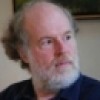An Important New Book on the Praxis of Social Ecology
Cover art for the book Practicing Social Ecology: From Bookchin to Rojava and Beyond by Eleanor Finley
Proponents of the theory and praxis of social ecology – the holistic approach to reharmonizing society and nature originated by social theorist Murray Bookchin during the 1960s – ’90s – have long sought new ways to introduce those ideas to a wider audience. While Bookchin’s writings offer an exceptional depth of analysis that has thoroughly captivated several generations of ecological thinkers and activists, even his most accessible work, Remaking Society from 1990, is sometimes viewed as too theoretical to be a sufficient starting point for some contemporary readers.
A new book by activist anthropologist Eleanor Finley offers just what many of us have been searching for. Finley discovered social ecology during the lead-up to Occupy Wall Street and then became deeply immersed in the Occupy movement. She went on to graduate studies at the University of Massachusetts and became a dedicated scholar and chronicler of a wide array of kindred movements, from municipal organizers in Barcelona to pemaculturists in Massachusetts and, most notably, Kurdish militants in Turkey and in the European diaspora. Her new book, Practicing Social Ecology: From Bookchin to Rojava and Beyond, from Pluto Press, offers a compelling synthesis of ethnographic research, journalism and political analysis, combining her field research and her own activist experiences in a highly engaging and superbly accessible manner. The book offers a kind of radical travelogue deeply rooted in radical history and theory, and along the way it addresses a host of key problems that remain as primary concerns for today’s environmental and social activists. It offers a welcome, up-to-date examination of social ecology as a living tradition.
Finley appropriately frames social ecology as a holistic response to the emerging global “polycrisis.” She invokes some of the foundational figures in left libertarian thought – writers like Kropotkin and his French comrade Elisée Reclus – and then summarizes Bookchin’s unique political biography, as well as the evolution of the Kurdish liberation movement from Maoist-inspired armed struggle toward a goal of stateless direct democracy that is most fully realized in the region of northeastern Syria widely known as Rojava. Finley’s analysis draws upon a host of kindred contemporary outlooks, including feminist theory, degrowth economics, aspects of Indigenous thought, environmental justice and elements of Pan Africanism – a “pluriversal” movement of movements in its fullest sense.
The book goes on to describe Bookchin’s dialectical nature philosophy in eminently accessible terms , focusing upon the emergence of a potential for self-organization and self-realization in primordial biological evolution, enabling the emergence of human consciousness and its myriad social expressions. Echoing Bookchin, she describes how, “The quest for freedom, ethics, and justice that direct democracy embodies is itself rooted in biology because we are rooted in biology.” She elaborates upon social ecology’s core understanding that today’s ecological upheavals are firmly rooted in the growth imperative of capitalism, and even more fundamentally in the long emergence of social hierarchy in all its forms, linking Bookchin’s insights to contemporary anthropological scholarship including Graeber and Wengrow’s epic Dawn of Everything. Bookchin’s 1960s era understanding of the potential for a “post-scarcity” society is updated with reference to Indigenous knowledge and contemporary degrowth........






















 Toi Staff
Toi Staff Belen Fernandez
Belen Fernandez Gideon Levy
Gideon Levy Tafi Mhaka
Tafi Mhaka Tarik Cyril Amar
Tarik Cyril Amar Somdeep Sen
Somdeep Sen Ghada Ageel
Ghada Ageel Moncef Khane
Moncef Khane Samer Jaber
Samer Jaber Andrew Silow-Carroll
Andrew Silow-Carroll Marcel Fürstenau
Marcel Fürstenau Yara Hawari
Yara Hawari Daoud Kuttab
Daoud Kuttab
